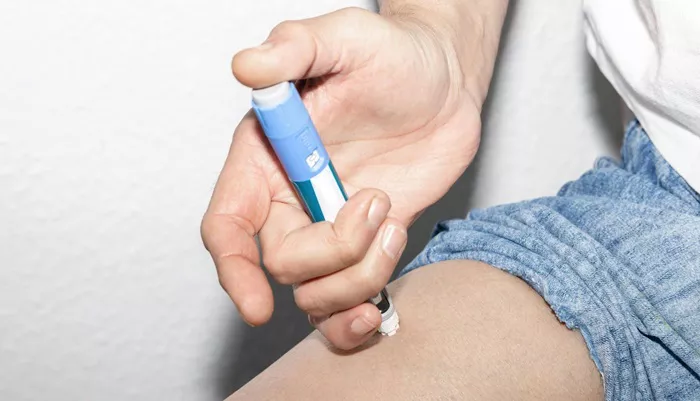Weight loss injections have become an essential part of medical weight loss solutions for many people struggling with obesity. The NHS offers these treatments to those who meet specific medical criteria. This article will provide a thorough overview of who qualifies for weight loss injections on the NHS, the process involved, and other important details.
Understanding Weight Loss Injections
Weight loss injections are medications designed to help individuals lose weight by altering metabolism or reducing appetite. They are often prescribed when other weight loss methods, such as diet and exercise, have not been successful. These injections are typically given to patients with a medical need for weight loss, especially those with obesity-related health conditions.
Eligibility Criteria for Weight Loss Injections on the NHS
1. BMI Requirement
To qualify for weight loss injections on the NHS, one of the key factors is your Body Mass Index (BMI). Typically, individuals with a BMI of 30 or higher are eligible for weight loss injections. However, in some cases, patients with a BMI as low as 27 may be eligible if they have obesity-related health issues such as diabetes or hypertension.
2. Obesity-Related Health Conditions
In addition to meeting the BMI requirement, patients may need to have one or more obesity-related health conditions to be eligible. These conditions can include:
- Type 2 diabetes
- Hypertension
- Sleep apnea
- Joint problems caused by excess weight
These conditions make weight loss a medical necessity, as they can significantly impact overall health and quality of life.
3. Failure of Other Weight Loss Methods
Patients must have tried other weight loss methods, such as dieting and exercise, without achieving sufficient weight loss. Doctors will assess whether these methods have been unsuccessful before recommending injections. This ensures that weight loss injections are used as a part of a comprehensive treatment plan, rather than as the first option.
How Weight Loss Injections Work
Weight loss injections work in various ways, depending on the medication used. Some medications help reduce appetite, while others increase metabolism or block fat absorption. The most common weight loss injections used on the NHS include:
1. Liraglutide: Liraglutide is a medication that mimics a hormone in the body that helps regulate blood sugar levels. It can reduce hunger and increase feelings of fullness. This helps patients reduce calorie intake and lose weight effectively. It is often prescribed for patients with a BMI over 30 or those with a BMI of 27 with additional health issues like diabetes.
2. Semaglutide: Semaglutide is a newer medication approved for weight loss. It works similarly to liraglutide, by suppressing appetite and helping the body use insulin more effectively. Research has shown that semaglutide can lead to significant weight loss when used as part of a treatment plan.
3. Orlistat: Orlistat works by blocking the absorption of some of the fat you consume in food. It is a different type of weight loss injection compared to liraglutide and semaglutide, as it targets fat absorption rather than appetite regulation.
Medical Consultation and Prescription Process
1. Initial Consultation
The process for receiving weight loss injections begins with a consultation with a healthcare provider. During this consultation, the doctor will assess the patient’s overall health, BMI, and any related health conditions. Based on this assessment, the doctor will decide whether weight loss injections are appropriate.
2. Ongoing Support and Monitoring
If the patient qualifies for weight loss injections, they will be prescribed the appropriate medication. Patients must then be regularly monitored by their doctor to assess the effectiveness of the treatment. This includes follow-up appointments and regular checks on weight loss progress and any side effects.
3. Other Medical Weight Loss and Wellness Options
In addition to weight loss injections, there are several other medical weight loss and wellness options available. These may include diet programs, exercise regimens, and the use of medical weight loss pills. Doctors will tailor a plan to each patient’s needs to ensure the best chances of success in achieving weight loss goals.
Cost and Accessibility
On the NHS, weight loss injections are provided free of charge for those who meet the eligibility criteria. However, outside the NHS, the cost of weight loss injections can be high. Some private clinics offer these treatments, but patients must pay for them out of pocket. Always discuss the cost and treatment options with a healthcare provider to make the best decision for your health and budget.
Potential Risks and Side Effects
As with any medication, weight loss injections come with potential risks and side effects. Common side effects include nausea, vomiting, and digestive issues. More serious side effects can include allergic reactions and changes in blood sugar levels. It is crucial for patients to be aware of these risks and have regular check-ups with their healthcare provider to monitor any changes in their health.
Alternative Weight Loss Treatments
If weight loss injections are not suitable for a patient, there are alternative treatments available. These can include lifestyle changes, prescription weight loss pills, and bariatric surgery for more severe cases of obesity. Discussing these options with a healthcare provider will help patients determine the best course of action for their individual needs.
Conclusion
Weight loss injections on the NHS are a valuable treatment option for those struggling with obesity and related health conditions. Eligibility is determined based on BMI, obesity-related conditions, and the failure of other weight loss methods. If you meet the criteria, these injections can be a powerful tool to help you achieve significant weight loss. Always consult with a healthcare professional to ensure that this treatment is right for you.
Related Topics:
How Much Weight Can You Lose from Injections


